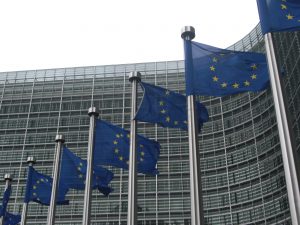
After more than 40 years of operation, DTVE is closing its doors and our website will no longer be updated daily. Thank you for all of your support.
AAPA slams EC antipiracy initiative as inadequate

The Audiovisual Anti-Piracy Alliance (AAPA) has slammed the European Commission’s recently published recommendation on combating online piracy of sports and other live events as inadequate.
The EC’s recommendation, published yesterday, encouraged hosting services to act promptly on notices related to live events, called for the use of blocking injunctions tailored to live events and, in the case of live sports events, encouraged member states to grant legal standing to sports event organisers to seek an injunction where it is currently not possible, and recommended live and sports event organisers and broadcasters to increase the availability, affordability and attractiveness of their commercial offers to end users across the EU.
The AAPA expressed its disappointment and concern about the possibility that a review of the effectiveness of the recommendation may not occur for two and a half years.
It deplored the fact that the EC’s initiative fell short of binding legislation, despite the European Parliament calling for this, and said that the two and a half year gap before a review could take place did not address the urgency of the situation faced by rightsholders.
It said the hiatus meant that the EC would “not do anything else short term to address online piracy of live events, whose value is – by nature – consumed live” and condemned the fact that “the Recommendation contains no deterrent to pirates to cease their illicit activities”.
“It is, in essence, a green light for pirates to keep stealing live content online. It also means that de facto, European consumers will be exposed to the risks related to the consumption of – all types of – pirated content for a few more years,” said AAPA’s strongly worded statement.
The organization called on the EC to carry out its assessment of the effectiveness of the Recommendation as soon as possible and to set out KPIs to measure this. The organization set out its own recommendations including more rigorous collection of data from rightsholders, member states and hosting providers.


